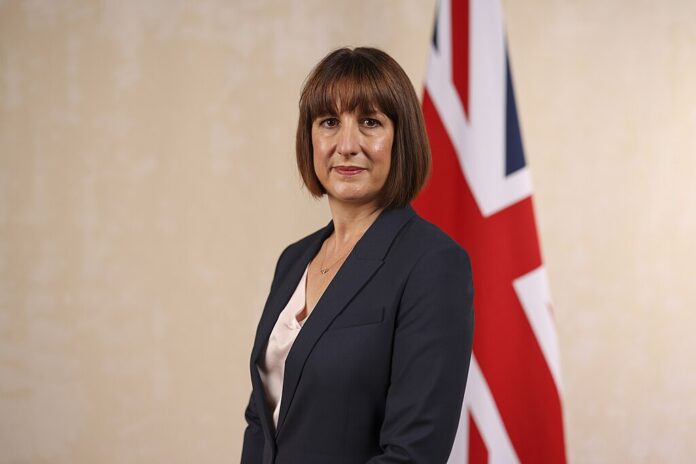Treasury modelling indicates potential rates of 33% to 39% as officials scramble to fill a significant budget shortfall
Rachel Reeves, the shadow chancellor, is considering increasing the capital gains tax (CGT) to as high as 39% in the upcoming budget, amid a pressing need to raise funds for struggling public services. According to exclusive reports by the Guardian, Treasury modelling reviewed by Reeves reveals that officials are testing a range of rates between 33% and 39% for the tax, which is paid by approximately 350,000 individuals and levied on profits from asset sales, including second homes and shares.
Whitehall sources have raised alarm over the limited options available to raise taxes to address a potential budget shortfall estimated by the Institute for Fiscal Studies (IFS) to be as large as £25 billion ahead of the budget announcement scheduled for 30 October. One senior source within the government noted, “Some very big tax decisions are being left until very late in the day,” while another expressed concern that the Treasury’s tax-raising strategies are in “complete disarray.”
Reeves, along with Labour leader Keir Starmer, has consistently pledged not to increase taxes for “working people,” explicitly ruling out hikes in income tax and national insurance. However, as plans for alternative wealth taxes have faltered, officials and ministers are increasingly worried that time is running out to devise effective solutions for raising funds.
Embed from Getty ImagesConcerns have been raised about the potential impact of targeting non-domiciled individuals and private equity executives for tax increases. Some officials warn that such measures may not yield additional revenue and could even result in a net loss for the Exchequer, as wealthy individuals might seek to relocate outside the UK.
In response to questions about disarray within the Treasury, a spokesperson stated that these claims were “inaccurate” and refused to comment on “pure speculation” regarding specific tax measures prior to the budget announcement.
The Treasury’s latest modelling indicates that higher rates of CGT, alongside increased inheritance tax (IHT) rates, could be at risk of unravelling, as officials scramble to present fresh data to the Office for Budget Responsibility (OBR) before the spending watchdog reviews the Treasury’s financial figures.
FINANCIAL TIMES
Executives in the UK are significantly increasing share sales due to concerns over a potential rise in capital gains tax (CGT) under a Labour government. Since the July 4 election, average weekly disposals by company directors have surged to £31 million, more than double the £14 million average from the previous six months, totalling approximately £440 million in disposals.
Chancellor Rachel Reeves is reportedly considering a CGT increase to address substantial public finance shortfalls. This prospect has led some business owners to expedite plans to sell their companies entirely. Current CGT rates range from 10% to 20%.
Reeves has assured that any changes will not hinder economic growth, emphasizing a responsible approach to fiscal policy. However, the looming October 30 Budget, coupled with an upcoming global investment summit in London, has heightened anxiety among business leaders regarding the potential tax hikes.
Executives have openly expressed their concerns, with one stating that their share sale was directly influenced by fears about CGT changes. The FTSE Aim All-Share index has already declined by 3.5% this year, reflecting broader market apprehension. CGT raised £14.4 billion in the last fiscal year, primarily affecting 350,000 taxpayers, with just 12,000 accounting for two-thirds of the total intake. As the Budget approaches, these developments could significantly impact investment strategies across the UK.
INDEPENDENT
A heated debate has erupted over the possibility of Chancellor Rachel Reeves increasing capital gains tax (CGT) rates to as high as 39% in response to a looming £25 billion budget deficit. This speculation follows reports that Reeves has requested Treasury officials to model CGT rates of 39% and 33%, which would significantly surpass the existing second-home rate of 24%.
Despite attempts from sources close to Reeves to downplay these allegations, concerns are rising amid pressure from the Institute for Fiscal Studies (IFS), which has indicated that Labour must secure an additional £25 billion in taxes to fulfil its spending commitments. This follows a drop in Labour’s popularity, with support falling below 30% in a recent poll, and growing uncertainty surrounding the party’s fiscal policies, including potential hikes in employer national insurance contributions and changes to non-dom taxation.
As the October 30 Budget approaches, there is increasing criticism that Reeves should have acted sooner to address these financial issues. While CGT currently contributes £15 billion annually to government revenue, critics warn that raising these taxes could discourage saving and investment, ultimately harming economic growth.
Stephen Millard from the National Institute of Economic and Social Research cautioned that an increase in CGT could deter savings, countering the government’s growth agenda. Given Labour’s election promise not to raise taxes on working people—such as income tax, VAT, or national insurance—Reeves finds herself in a challenging position as she navigates these fiscal constraints.
